Pregnancy Food Chart
The pregnancy food chart and foods to avoid during pregnancy are the most important details every mom-to-be should know for a healthy pregnancy and fetus growth.
Every pregnancy and nutritional requirement is different and needs to be changed from time to time based on your mood and carvings.
Best Nutritionist in Bangalore
Consult 19-year-experienced Chief Nutritionist Vasanthi, in person at HSR, Koramangala, Bellandur, Haralur, Electronic city, or online across India.

Table of Contents

Food Chart For Healthy Pregnancy
- Early morning drink @ 6:30 am: Soaked and peeled almonds with a glass of warm milk
- Breakfast @ 9 am: Cottage cheese pancakes with honey
- Mid-morning meal @ 11 am: Baby spinach and apple salad in lemon curd dressing
- Lunch @ 1 pm: Rice + dal + green beans curry + curd
- Evening snack @ 4 pm: Banana walnut bread and a glass of lassi
- Dinner @ 7 pm: Sweet potato stuffed parathas with low-fat curd.
Tips for a healthy pregnancy
- Drink sufficient water to keep yourself hydrated. Take water in the form of juices (unsweetened) and soups in addition to water. Restrict the intake of artificial sweeteners and caffeine.
- Add all kinds of vegetables to make the body available for all the vitamins and minerals and to regulate bowel movements.
- The pregnancy food chart includes all types of fruits except for papaya and pineapple which may lead to miscarriages during the early weeks of pregnancy.
- Low-fat dairy products are recommended during pregnancy as full-fat milk contains saturated fats which may lead to excess accumulation of fats in the body.
- Include foods that are rich in folic acid as it is considered an essential vitamin for the brain development of the fetus and the prevention of neural tube defects in the baby.
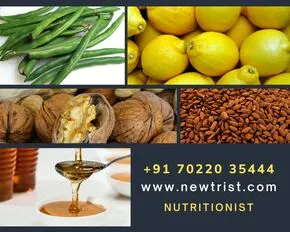
Pregnancy Food Chart for Indian Mom-to-Be
- Early morning drink @ 6:30 am: Unsweetened orange juice
- Breakfast @9 am: Paneer dosa + Tomato sabzi
- Mid-morning meal @ 11 am: Cream of Pumpkin soup
- Lunch @ 1 pm: Vegetable khichdi + 1 fruit + 1 small bowl of curd
- Evening snack @ 4 pm: Coconut chia pudding
- Dinner @ 7 pm: Chickpea vegetable curry with roti.
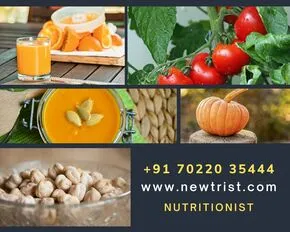
The pregnancy food chart for Indian Mom-To-Be consists of Indian foods. Orange juice in the morning helps to reduce the nausea effects of morning sickness. The paneer dosa for breakfast provides the needed proteins and calcium.
The vitamins in pumpkin assist the development of the baby. The vegetable khichdi and chia seeds supply the body with fibers that are essential to prevent unwanted weight gain during pregnancy.
Quick and Easy Pregnancy Food Chart
- Early morning drink @ 6:30 am: Pomegranate juice (Fresh)
- Breakfast @ 9 am: Bircher muesli
- Mid-morning meal @ 11 am: Peanut chickpea salad
- Lunch @ 1 pm: Roti with spinach dal and apple
- Evening snack @ 4 pm: Layered yogurt pots with fruit compote
- Dinner @ 7 pm: Smashed avocado and tomato on toast
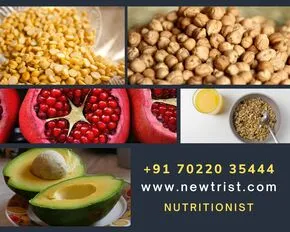
This easy-to-cook pregnancy food chart includes fresh fruits, legumes, whole grains, dairy products, and probiotics.
Consumption of pomegranate juice in the morning helps in reducing gestational hypertension and provides the necessary iron content. The peanut chickpea salad is a rich source of proteins and fiber that keeps you satiated for long hours.
Spinach is a powerhouse of nutrients that provides numerous benefits to the mother and baby. The probiotic yogurt helps in maintaining the gut microbiome and prevents any gastric issues. Omega-3 fatty acids are availed from avocado toast.
Nutritious Vegetarian Food Chart for Pregnancy
- Early morning drink @ 6:30 am: Lemon juice with a dash of mint and ginger
- Breakfast @ 9 am: Methi paratha with curd
- Mid-morning meal @ 11 am: Banana cucumber salad
- Lunch @ 1 pm: Rice with kidney beans curry and roasted cottage cheese
- Evening snack @ 4 pm: Sliced apple with 1 spoon of peanut butter
- Dinner @ 7 pm: Creamy mushroom spinach pasta.
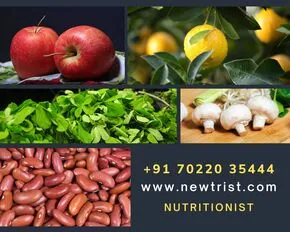
The nutritious vegetarian food chart for pregnancy contains methi paratha which is a healthy iron-rich source that is easily digestible. Banana provides the required potassium and cucumbers are good sources of fiber and nutrients.
The kidney beans curry and cottage cheese fulfill the daily protein requirements. Mushrooms and spinach are low-calorie foods that are rich in fiber. This vegetarian pregnancy food chart includes fruits, whole grains, vegetables, fruits, dairy products, and greens.
1st Trimester Pregnancy Food Chart
- Early morning drink @ 6:30 am: Ginger, mint, and tulsi tea with a dash of cinnamon
- Breakfast @ 9 am: Vegetable uthappam with green chutney
- Mid-morning meal @ 11 am: Lentil vegetable soup
- Lunch @ 1 pm: Brown rice with egg curry and guava
- Evening snack @ 4 pm: Soaked poha with jaggery and raisins
- Dinner @ 7 pm: Wheat dosa with tomato sabzi

The first trimester usually starts with morning sickness that alleviates the food habits during the early days of pregnancy. The ginger, mint, and tulsi make you feel refreshed and relieve you from morning sickness.
The vegetable uthappam, lentil vegetable soup, guava, and brown rice provide more fiber and calories needed to perform essential body functions.
Soaked poha and jaggery are good sources of iron and fiber. Wheat dosa is supplied with fiber and tomato sabzi is full of antioxidants.
2nd Trimester Pregnancy Food Chart
- Early morning drink @ 6:30 am: Fresh tender coconut water
- Breakfast @9 am: Moong dal chillas with coconut chutney
- Mid-morning meal @ 11 am: Apple milkshake
- Lunch @ 1 pm: Multigrain roti with chickpeas curry and lassi
- Evening snack @ 4 pm: Vegetable salad made with carrots, cucumber, and onions
- Dinner @ 7 pm: Idly with sambar and coconut chutney and a banana at bedtime.
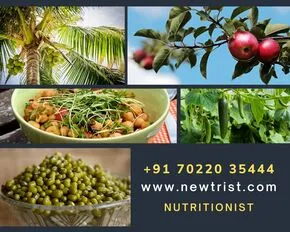
The second-trimester pregnancy food chart should consist of foods from the basic five food groups i.e, fruits, vegetables, proteins, dairy, and grains. A healthy diet during the second trimester ensures that the baby gets enough nutrients for its development.
The food chart must be planned in such a way that all the vitamin and mineral needs are fulfilled during pregnancy. The intake of nutrients during the second trimester helps in nourishing the baby and the excess nutrients are stored for breastfeeding in the future.
3rd Trimester Pregnancy Food Chart
- Early morning drink @ 6:30 am: Carrot juice
- Breakfast @ 9 am: Mooli paratha with curd
- Mid-morning meal @ 11 am: Cucumber and Mint soup
- Lunch @ 1 pm: Jeera rice with potato curry and an omelet made with onions, tomatoes, and capsicum and 1 custard apple
- Evening snack @ 4 pm: Crispy puffed rice with roasted peanuts
- Dinner @ 7 pm: Finger millet roti with mushroom and peas curry and a glass of turmeric golden latte at bedtime.
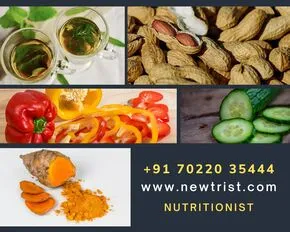
The third-trimester pregnancy food chart must require adequate nutrients as the baby quickly gains weight during this time and most of the developments occur.
The vitamin A content in carrot juice assists your baby’s bone growth. The vitamin C present in radishes, cucumber, and curd helps in the absorption of iron and boosts immunity.
The vitamin B12 in eggs and mushrooms helps in the formation of red blood cells and strengthens the nervous system. Potatoes and peanuts contain choline which helps in the formation of the brain and spinal cord in the fetus.
Month By Month Pregnancy Diet Chart
- Early morning drink @ 6:30 am: Watermelon Juice
- Breakfast @ 9 am: Spinach dosa with coconut chutney
- Mid-morning meal @ 11 am: Seasonal fruit salad
- Lunch @ 1 pm: Peas Corn pulav with beetroot raita
- Evening snack @ 4 pm: Roasted nuts and seeds
- Dinner @ 7 pm: Multigrain toast with two eggs
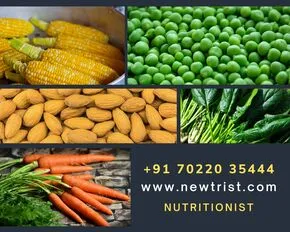
The monthly pregnancy diet chart consists of a variety of vegetables, fruits, nuts, and eggs to provide a filling meal with multiple nutrients. The nutrients that you consume determine the health of the baby and it is a vital requirement for the development of the baby.
Some morning drinks alleviate the morning sickness that is more troublesome during the early days of pregnancy.
Week By Week Pregnancy Diet Chart
Your baby is constantly growing and developing in different stages every week. A week-by-week diet chart can help pregnant women to make sure they get enough nutrients for fetus growth.
- Early morning drink @ 6:30 am: Mango and wheat germ smoothie
- Breakfast @ 9 am: Spinach-cheese egg scramble
- Mid-morning meal @ 11 am: Chilled cucumber and mint soup
- Lunch @ 1 pm: Jowar bajra spring roll onion roti
- Evening snack @ 4 pm: Carrot muffins
- Dinner @ 7 pm: Multigrain rotis with soy chunks gravy
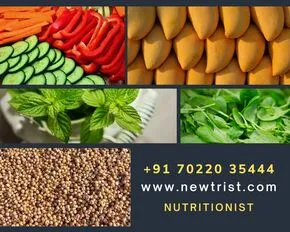
PCOS Diet Plan To Get Pregnant
PCOS diet plan to get pregnant must include greens like spinach and avocado which are good sources of folate and iron. Eggs provide the required proteins and amino acids.
Avocados and peanut butter supply the body with healthy fats to maintain healthy HDL levels in the body. The ashwagandha drink reduces inflammation.
- Early morning drink @ 6:30 am: Ashwagandha drink
- Breakfast @ 9 am: Whole grain toast with avocado and peanut butter and orange juice
- Mid-morning meal @ 11 am: Creamy spinach soup
- Lunch @ 1 pm: Mixed veg pulav + raita + boiled egg
- Evening snack @ 4 pm: Boiled sprouts salad with onion, tomato, and cucumber
- Dinner @ 7 pm: Paneer kofta curry + pulka
Click to see the PCOS insulin resistance diet Plan with Expert Guidance.
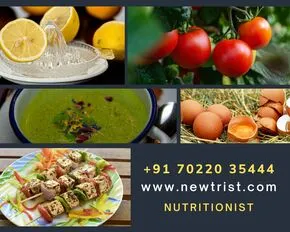
Benefits and Risks of 12 Nutritious Fruits during Pregnancy
Fruits during pregnancy improve digestion, reduces morning sickness, maintain hydration, relieve constipation, and prevent infections.
Click to see the detailed benefits and risks of eating avocado, bananas, dragon fruit, grapes, black grapes, guava, kiwi, melon, papaya, pear, pineapple, strawberries, and watermelon during pregnancy.
A healthy balanced pregnancy diet is incomplete without fruits. Fruits are rich in fiber, antioxidants, and vitamin-rich which adds colors and nutrients to your diet. Incorporating fruits helps to avoid empty calories from junk foods. Fruits also help in preventing constipation that causes discomfort.
- Oranges are a good source of folic acid, vitamin C, and antioxidants. It is also a thirst quencher and helps in iron absorption in the body. The antioxidant properties prevent cell damage.
- Avocados are highly nutritious fruit that is rich in vitamin B, C, K, folate, magnesium, potassium, and choline. Avocados are an excellent addition to the pregnancy menu.
- It is advised to avoid unripe papaya during pregnancy as the latex present in them induces uterine contractions that may lead to miscarriages and premature delivery of the fetus. You can have ripe papaya in controlled quantities.
- The bromelain found in pineapple alters the texture of the cervix leading to premature contractions. This can cause miscarriage and diarrhea in some cases.
- Including more fruits in the diet provides the right nutrients for the baby. Bananas, watermelon, grapes, apples, kiwi, pomegranates, custard apples, and lemons are an excellent addition to the pregnancy menu.
- Fruits are one of the highly nutritious foods during pregnancy. Bananas, guava, apple, grapes, pomegranate, oranges, avocados, pears, and apricots are rich in essential vitamins, folate, calcium, iron, potassium, phosphorus, and fiber.
Healthy Snack Ideas for a Balanced Pregnancy Diet
Make healthier choices for snacks while you are pregnant. Limit fried foods, sugary foods, candies, pastries, cakes, and puddings. Munch on roasted nuts, fruits, boiled eggs, smoothies, hummus, and much more.
The nutritional requirement increases as the pregnancy advances. Select snacks that you acquire the nutritional needs from healthier choices.
- Best snack options help in reducing increased appetite and calming down the cravings for sugary and salty foods.
- When fruits are the best choice of snacks, it helps to eat easier without any extra flavors that exaggerate the nausea symptoms.
- Fruit and vegetable smoothies are very filling and easy to make and add colors to the menu.
- Nuts and seeds are loaded with fiber, healthy fats, proteins, and minerals. All you need is to just grab a handful of nuts and seeds from the kitchen to satisfy your hunger. Walnuts are rich in omega-3 fatty acids that are needed for the baby’s brain development.
- Boiled eggs are a good choice for a filling snack. Choline, an essential nutrient vital for the baby’s brain development of found in abundance in egg yolks. Ensure the egg is cooked well to avoid any infections due to the presence of bacteria in raw eggs.
Click to see the detailed benefits and risks of having Chocolate, Ice Cream, Chocolate ice cream, Sweets, Popcorn, and Mayonnaise during pregnancy.
Foods To Avoid During Pregnancy
Some foods may cause discomfort during pregnancy which the doctors and nutritionists advise excluding from the menu.
- The hormonal changes during pregnancy may bring in some cravings that affect the smell and taste which affects the hunger for some foods.
- Avoiding raw papaya can avoid miscarriages that are caused by the presence of latex and papain in them.
- Infections and foodborne illnesses may result from the consumption of unpasteurized dairy products and eggs.
- Raw meat used in making sushi and salami can contain germs that affect the health of pregnant women. Avoid consuming these foods to avoid the risk of infections.
- Avoid sea foods that contain high levels of mercury which can affect the brain and nervous system of the baby in its developmental stages. Consume freshwater fishes and sea fish with low levels of mercury.
Pregnancy Food Chart FAQs
Can I drink milk in the second trimester?
Milk is an excellent choice of food during the second trimester. Milk is a rich source of protein, calcium, and other nutrients the mother and the baby need. Pure cow’s milk and pasteurized milk are best. Avoid consuming raw milk and unpasteurized dairy as it may lead to salmonella infections during pregnancy.
Can I eat pani puri during pregnancy?
Home-made pani puris can be consumed during pregnancy. The pani keeps you refreshing and prevents you from the effects of dehydration. Avoid eating pani puris if you are prone to gestational diabetes. Stay away from consuming pani puris from the local street vendors due to unclean water and unhygienic issues. The pani puri vendors use the same oil repeatedly to fry the puris which can be carcinogenic to the pregnant mother.
How can I eat a balanced diet while pregnant?
Include a variety of healthy foods such as fresh fruits, vegetables, whole grains, beans, legumes, low-fat dairy, lean meats, fish, and eggs. Refrain from foods such as fried foods, sugary beverages, and salty foods. High-fiber foods keep constipation and digestive problems at bay. Protein-rich foods support the baby’s growth and promote healthy weight gain as pregnancy progresses.
How to make healthy snacks for pregnancy?
Fruit salad, vegetable salad, smoothies, roasted nuts and seeds, hummus with sliced vegetables, homemade trail mix, low-fat milkshakes, boiled eggs, roasted chickpeas, sweet poha with jaggery, and baked cutlets are a few healthy snack options for pregnancy. Avoid deep frying the snacks and prefer low-fat food options for a healthy pregnancy.
What are easy foods to eat while pregnant?
Whole grain toast with eggs, khichdi, sandwich, boiled sprouts, cheelas stuffed with cottage cheese, parathas, rice with vegetable or chicken curries, oats, poha upma, idlies, dosas, roasted nuts, salads, and millet rotis/dosa are some of the easy foods to eat while pregnant. Easy-to-prepare homemade meals are more nutritious than restaurant foods that are high in oil and salt.
What are the best foods for a successful pregnancy?
High-fiber foods such as whole grains, brown rice, millet, oats, fruits, vegetables, beans, legumes, nuts, and seeds, deskinned chicken, eggs, turkey, and fatty fish rich in omega-3 fatty acids are some of the best foods for a successful pregnancy. Stay away from foods such as cakes, cookies, doughnuts, fried foods, and processed meats such as sausages, bacon, and hotdogs as these foods are high in saturated fats that bring complications in pregnancy.
What food should I avoid during 1st trimester?
Raw papaya, too many grapes, raw fish and meats, fish high in mercury, sunny-side-up eggs, raw sprouts, caffeinated beverages, unwashed fruits, and vegetables, unpasteurized dairy products, foods with added additives and flavor enhancers, fried foods, processed and refined junk foods, packaged foods, and too much of dark chocolates should be avoided during the first trimester.
What fruits can I eat in my third trimester?
Apples, bananas, guavas, pomegranates, oranges, kiwis, lemons, amlas, avocados, melons, pears, strawberries, and dates are a few best fruits in your third trimester. Fruits provide instant energy and help to treat morning sicknesses such as nausea and vomiting. Fruits provide a surplus supply of vitamins and minerals that nourish the mother and fetus throughout the pregnancy. refrain from consuming fruit juices with added sugars as it may trigger the chances of gestational diabetes.
What Indian food to eat in the third trimester?
Idlies, Millet dosa, ragi idli, poha upma, vegetable vermicelli, dal khichdi, brown rice, dal tadka, vegetable sabzi, tomato-mint pulav, banana milkshakes, chapatis with paneer/mushroom gravies, chicken, and fish curries are some of the Indian foods to eat during the third trimester. Major growth and development of body parts takes place in the third trimester making it a crucial period for the mother and baby. Adequate nutrition with healthy food choices supports healthy pregnancy.
What is the best food for a pregnant woman?
Whole grains, fruits, leafy greens, vegetables, low-fat dairy products, beans, legumes, eggs, lean chicken, turkey, and mercury-free fish are the best food for a pregnant woman. Opt for healthier food choices rich in fiber and healthy fats and low in saturated fats and caffeine. Look for food sensitivities and allergies to certain foods that might worsen any underlying medical issues before you choose any specific food.
What is the healthiest food to eat while pregnant?
Any food cooked at home under hygenic conditions is healthier than any food during pregnancy. choose foods from a wide variety of food sources such as pesticide-free fruits, vegetables, whole grains, nuts seeds, beans, legumes, skimmed milk products, fish low in mercury, eggs, and organic grass-fed chicken. Avoid foods high in added sugars, excess salt, and saturated fats.
What not to eat during 3rd trimester?
Dishes involving the usage of raw meats such as sushi and sashimi carry the risk of Salmonella infection that should be avoided during the third trimester. Foods high in saturated fats such as fried foods, butter, margarine, cakes, cookies, pastries, uncooked salad dressings, sodas, sugary foods, and processed foods should be avoided during the third trimester. Limit the consumption of soft cheese, soft-serve ice creams, and unpasteurized dairy products during the third trimester.
What not to eat in the first 3 months of pregnancy in India?
Raw foods such as uncooked meat, fish, eggs, unpasteurized milk products, organ meats, raw papaya, too many grapes, pineapples, eggplants, asafoetida (hing), flavor enhancers such as Ajinomoto, artificial coloring agents, sesame seeds, caffeinated drinks, sodas, and unwashed fruits and vegetables should not be consumed during the first 3 months of pregnancy in India. Eating fish and seafood during the early days of pregnancy aggravates the morning sicknesses which is the most common symptom during pregnancy.
What should a pregnant woman eat daily?
Healthy foods such as washed fruits, vegetables, whole grains, beans, legumes, lean meats, eggs, fish, nuts, and seeds should be part of a healthy nutritious diet in the daily menu. Foods rich in antioxidants, flavonoids, omega-3 fatty acids, and anti-inflammatory foods nourish you throughout your entire gestational period and safeguard you from infections and inflammations.
What should a vegetarian eat when pregnant?
A wide range of sources are available from plant-based foods such as fruits, leafy greens, vegetables, millet, lentils, nuts, seeds, dried foods, and soy foods provide a valuable source of nutrition for a pregnant woman. You may avoid dairy products such as milk, curd, cheese, buttermilk, paneer, and flavored milk if you are a vegan and switch to non-dairy alternatives such as soy foods and lentils for a good protein source.
What should I eat during Indian pregnancy?
Dal khichdi, stuffed parathas, millet idlies, poha upma, whole wheat sandwiches, multigrain rotis, fruit milkshakes (made with pasteurized milk), dal tadka, vegetable sabzis, boiled sprouts, chicken soups and curries, fish curries, and boiled eggs are some of the nutritious options for a healthy Indian pregnancy. Low-fat dairy products can be added to the menu for a protein-rich source.
What should I eat when expecting pregnancy?
Plenty of fruits, vegetables, whole grains, pulses, beans, deskinned chicken, oily fish, eggs, nuts, and seeds should be eaten when expecting pregnancy. More servings of fiber-rich foods such as fruits, vegetables, and leafy greens with reduced intake of fatty foods provide you more benefits and prevent you from the risk of type II diabetes, gestational hypertension, obesity, and other lifestyle disorders.
What snacks can I eat at night while pregnant?
Cut fruits, boiled eggs, spicy puffed rice, poha with jaggery and grated coconut, whole wheat bread slices with peanut butter, roasted nuts, roasted channa, peanut bars, and chikkis, carrot and cucumber sticks, and turmeric latte (low-fat) are some of the healthy snacks to munch on at night for a pregnant woman. Dark chocolates can be consumed in limited quantities (1-2 pieces) as they contain too much caffeine.
Which dal is good for pregnancy?
Moong dal is good for pregnancy. Moong dal is a rich source of protein, iron, folate, and fiber that is essential for a healthy pregnancy. It is easily digestible and does not provoke any digestive issues for an expecting mother. It is a low-fat food and rich in minerals such as potassium and magnesium. Being a rich source of iron, moong dal promotes the production of red blood cells in the mother and fetus and combat anemia, fatigue, weakness, and related health issues.
Which food is best in the first trimester?
Lean meats such as skinless chicken, fruits, such as apples, bananas, pomegranates, guavas, melons, lemons, strawberries, pears, and oranges, all vegetables excluding eggplants, leafy greens such as spinach, kale, lettuce, and amaranth greens, herbs such as turmeric, ginger, and lemongrass, beans, lentils, nuts such as almonds, walnuts, pistachios, and cashews, seeds such as pumpkin seeds, sunflower seeds, and melon seeds are the best foods in the first trimester.
Which fruit is best for the first trimester?
Apples, oranges, bananas, lemons, pears, mangoes, pomegranates, guavas, and avocados are the best fruits for the first trimester. Fruit consumption curbs the sugar cravings and provides a good source of vitamins A, C, and E, fiber, calcium, iron, beta-carotene, and folate for the growth and development of the fetus. The high-water content of fruits keeps you hydrated and helps in maintaining the electrolyte balance.
Which fruit is best in pregnancy?
Fruits are excellent sources of vitamins, minerals, fiber, and antioxidants that support healthy pregnancy. Fruits such as watermelons, cantaloupes, kiwis, avocados, oranges, pomegranates, guavas, lemons, amla, and dates are some of the best fruits during pregnancy. Fruits prevent constipation, heartburn, and acidity problems during pregnancy. The folic acid content in many fruits prevents neural tube defects and spinal cord abnormalities in the developing fetus.
Which fruits are best in the second trimester?
A balanced diet is incomplete without fruits. Fruits such as bananas, apples, pomegranates, cantaloupes, strawberries, watermelon, and citrus fruits such as oranges, lemons, kiwis, amlas, and gooseberries (avoid semi-ripe papaya, grapes, and pineapples), and dried fruits such as dates, figs, and apricots are some of the best fruits in the second trimester. Consumption of fruits helps to relieve cramps and relax muscles and prevents premature contractions.
Which Indian food is good for early pregnancy?
Parathas with curd, stuffed idlies, carrot and onion uttapam, millet vegetable khichdi, white/brown rice, chicken curries, fish tikka, paneer pulav, chickpea salad, bajra roti with mushroom curry, jowar roti stuffed with mixed vegetables, tomato soup, moong dal dosa, pesarattu, ragi muddha, moringa soup, and dates milkshakes (unsweetened) are some of the Indian foods good for early pregnancy.
Which is the most important food in the first month of pregnancy?
Foods rich in protein such as skinless chicken, eggs, and seafood (low-mercury fish) are the most important food in the first month of pregnancy. For vegetarians, protein sources are nuts, peas, lentils, beans, milk products, and soy foods like soy milk, tofu, and edamame. Proteins are essential nutrients for the growth of the baby in its developmental stages. Focusing on protein-rich foods results in a healthier baby.